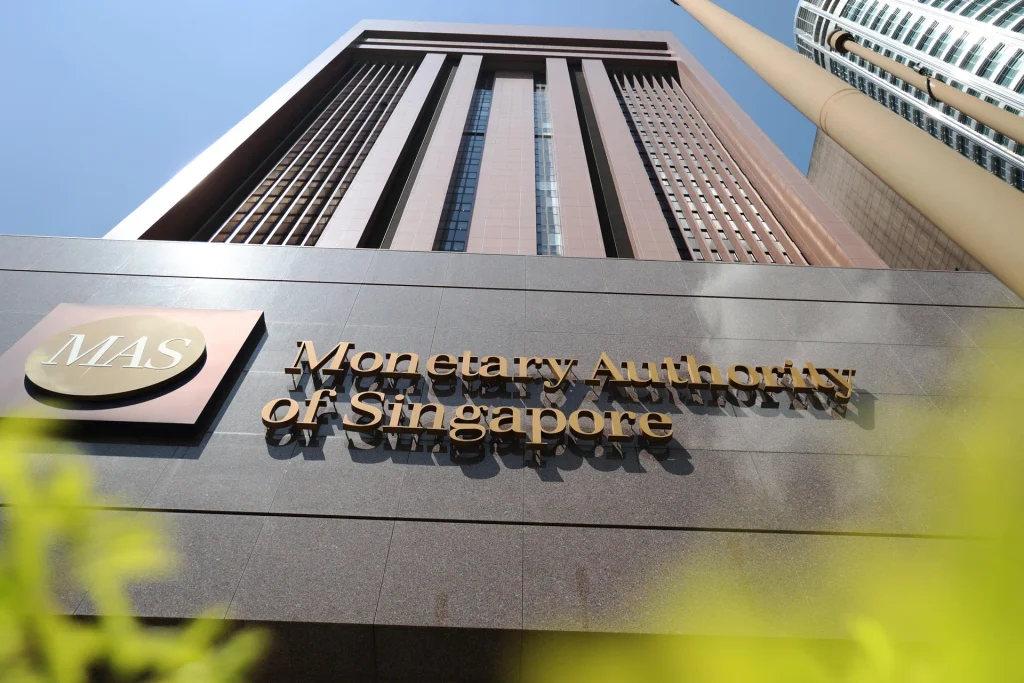[SINGAPORE] A final warning from the Monetary Authority of Singapore (MAS) has prompted major crypto exchanges operating in the country without a permit to plan for a hasty exit.
Bitget and Bybit – top-10 exchange operators by volume with a presence in Singapore but no local licence – plan to reorganise their teams, according to people familiar with the matter. Bitget will move staff to jurisdictions including Dubai and Hong Kong, while Bybit is weighing similar moves, added the people, who refused to be identified as the plans are confidential.
Singapore is among Asia’s foremost crypto hubs and a regional base for major global players such as Coinbase and Crypto.com. But it still bears the scars of a string of local blow-ups from the last industry downturn in 2022. Even as it doles out licences, authorities in the Republic have warned consumers against trading cryptocurrencies and restricted related advertisements.
Other digital-asset firms in the country warn that hundreds of jobs could be at stake. The companies hit hardest by the MAS deadline are offshore exchanges. Collectively, such firms have a “significant number” – in the hundreds – of staff based in Singapore, according to Arthur Cheong, founder and CIO of DeFiance Capital.
In its May 30 announcement, the MAS set a deadline of Jun 30 for crypto firms based in Singapore and offering services offshore to cease activities, refusing to allow transition time and warning that further licences would be granted under “extremely limited” circumstances. Firms with front-office functions including sales and business development based in Singapore or with customers located overseas both fall within the scope of the regulation, MAS said.
“It’s quite severe,” said Patrick Tan, general counsel at ChainArgos, a blockchain intelligence firm that is not affected by the notice. “This is almost is as good as an evacuation procedure.”
BT in your inbox

Start and end each day with the latest news stories and analyses delivered straight to your inbox.
Representatives of Bitget and Bybit declined to comment on their plans.
“This move should also not come as a surprise to the industry as we have consistently communicated our position on such service providers on various occasions,” said an MAS spokesperson in response to questions from Bloomberg News. They added that licenced entities are not impacted by the new regulations.
The recent notice from the MAS follows on from the Financial Services and Markets Act, passed in 2022, in which the watchdog had warned of a crackdown on unlicenced crypto companies. In a Jun 6 clarification, the MAS sought to quell industry concerns stemming from its May 30 announcement by specifying that only a “very small” number of providers would be affected.
But questions remain as to which firms must pay heed to the Jun 30 deadline.
“Calls are at all hours given the impact on businesses headquartered outside Singapore,” said Chris Holland, partner at Singaporean consulting firm HM. “Queries range from regulated firms wanting to confirm there is no unexpected operational impact to offshore businesses needing to derisk their Singapore activities.”
Grey area
Crypto firms have a long history of leaving their base of operations ambiguous, posing challenges for would-be regulators. Binance Holdings, the world’s largest digital-asset exchange, has never named a global headquarters. Its chief executive officer Richard Teng said in 2024 that it had held talks with a number of jurisdictions on the matter, but more recently he described Binance employees as “remote-first”.
Binance has been on Singapore’s investor alert list since 2021. A company spokesperson said that the firm is committed to respecting local policies and regulations worldwide, without elaborating on its presence in the city-state.
Crypto entities that make use of Singapore-based teams “to support offshore operations without clear service delineation” are another grey area, said Grace Chong, head of financial regulatory practice in Singapore at Drew & Napier. The MAS may assess such arrangements on a case-by-case basis, she added. BLOOMBERG


